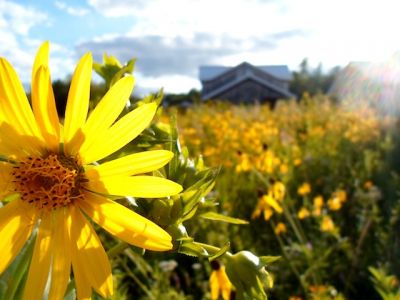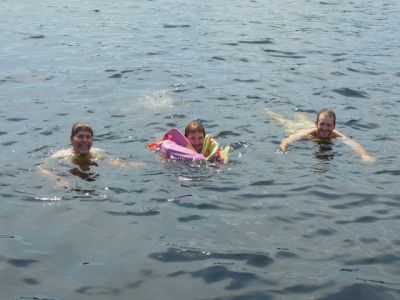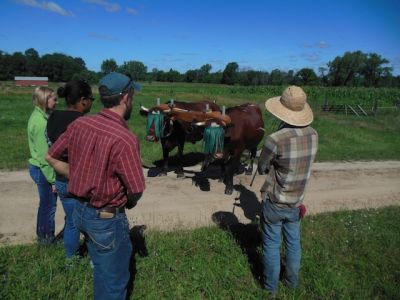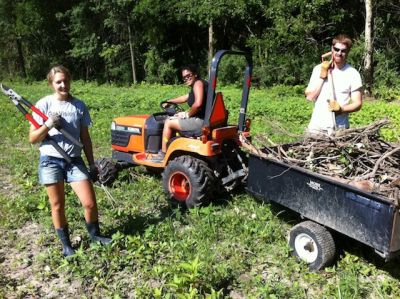Prairie Flowers, Pioneer, and a Summer Swim

As we approach the final week of the summer intensive, the season of transition has been accompanied by a whirlwind of activities: field trips, harvesting produce, visits from friends, writing papers, and impending goodbyes. Meanwhile, the Rieth Village landscape has been transitioning in its own way. The prairie has become a sea of yellow with purple accents, as the grey-headed coneflower, black-eyed susan, cup plant, and bee balm prairie flowers have come into full bloom. The fair weather this summer has induced bounty in the gardens to the point where we can hardly find homes for all the vegetables. The weeds have been equally vigorous. They’re so far gone in some places that we’ve begun a desperate quest to remove foxtail seed heads before they can spread.

The field trips over the past several weeks have been diverse and engaging. On the 17th, we drove north into Michigan to tour the DuPont Pioneer Hi-Bred seed corn plant in Constantine. It is amazing to think of how many tiny corn kernels are unloaded, cleaned, sorted, dried, treated, and packaged each day during harvest in this industrial setting. After Pioneer, we visited Henry Miller’s 2000-acre crop farm to learn about his strip-till and cover crop practices. Finally, we visited former ASI student Jon Templin’s farm near Three Rivers. After touring Jon’s Butternut Sustainable Farm and his ten impressive acres that supply high-end restaurants in Chicago, we were treated to a boat ride to cool off on a hot day.

We headed back into Michigan the following week to visit Tillers International, an educational farm with a mission to preserve and study low-capital technologies like draft animals that increase the sustainability of rural communities across the globe. There, I discovered that there is something humbling about steering a team of oxen. It embodies a kind of husbandry that has been all but lost in this part of the world. Without trying to romanticize too much, I believe Tillers efforts of using low-input methods is exactly what Wendell Berry envisioned when he wrote that “husbandry is the name of all practices that sustain life by connecting us conservingly to our places and our world; it is the art of keeping tied all the strands in the living network that sustain us.” Food for thought.
Other exciting experiences on the Merry Lea farm recently have included selling (or attempting to sell) produce at the Elkhart County Fair, getting a new BCS walking tractor, and clearing the site for the future animal barn. As fun as it looks, following a root deeper and deeper into the soil in a futile attempt to find its end was not our favorite activity.

As we prepare for final exams and project deadlines, it has been fun to look back on a summer of learning communally, exploring concepts, and building relationships. We’ve learned and done so much in such a short period of time! I know for a fact that no matter where life takes us next, whether it’s back to the books, beginning a new job, or starting up a farm of our own, we will look back fondly on the summer of 2013 at Merry Lea and strive to incorporate the values we’ve formed here into the fabric of our lives.
– Lillie Koerner, 2013 ASI student




